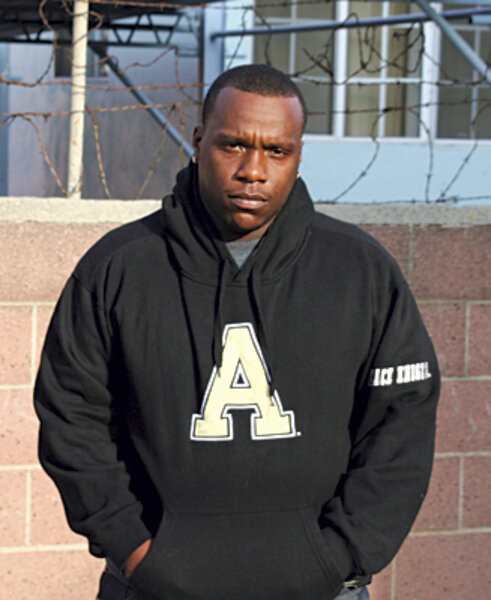Lheadry Powell knows what it feels like to be under suspicion, whether he's in his own neighborhood in L.A.'s gang-ridden Watts or 45 miles inland in the college town of Pomona, where he teaches troubled high-schoolers for the Los Angeles County Office of Education.
"You name it … walking, in stores, in my car, in malls, getting ice cream," says Mr. Powell, who grew up in Compton, Calif., and now also coaches high school football. "I'm always being racially profiled – by the police or women on the street who give me looks and clutch their purses tighter when they see me coming."
He says police pull him over four or five times a month on average, for "driving while black." Officers "go through my trunk, my glove compartment, look under and behind the seats," he says.
Powell says his parents, like many parents of black boys, gave him the "talk" when he was growing up: how to dress, walk, act, and speak in situations from shopping in stores to being stopped by police.
"They said to be polite. Look people straight in the eyes. Tell them exactly what they want to hear without attitude. Always carry items out of the store in a bag."
To this day, Powell says, he tries to follow all their advice.
– Daniel B. Wood, staff writer






